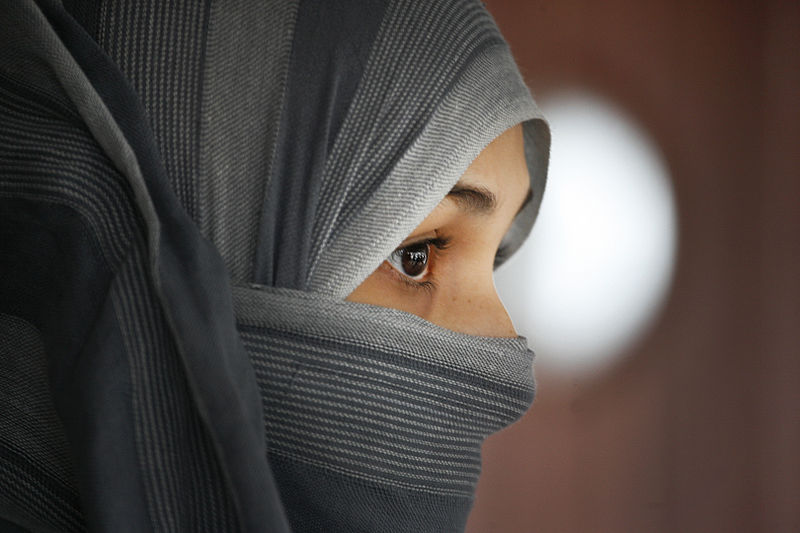Canada is forgetting what it means to be Canadian, said St. Thomas University religious professor Alexandra Bain.
For a country that is officially multicultural, with 20 per cent of its population a visible minority, with 200 languages spoken just in Toronto and a country that prides itself on being welcoming to anyone and everyone – Canada’s leadership has not been open about multiculturalism lately.

“I am a child of the sixties. Canadians are supposed to let other people do their own thing,” Bain said.
A recent debate suggests otherwise. Last week, Prime Minister Stephen Harper appealed the court ruling that struck down the ban of the niqab, a face-covering cloth, during citizenship oaths. Harper said the niqab is part of a culture that is “anti-women” and that’s not what Canada is about.
The Federal Court ruling in February comes from Zunera Ishaq, a woman now living in Toronto and originally from Pakistan, who didn’t want to have to remove her niqab in front of a male judge during her citizenship oath. She won the court ruling – but Harper has appealed that ruling.
“Stephen Harper is making a mistake by demonizing women who wear the niqab,” said Bain.
Bain said Canada is becoming less welcoming because of recent events in the Middle East, the foreign policy stance Canada has taken with the United States which includes Canada bombing again in the Middle East.
“…And then you have the Prime Minister telling Muslim women what they are supposed to wear and how to wear it. And claiming that if they don’t comply with this, then they are not really Canadians. This is not Canadian of them.”
Bateman said he can’t speculate if banning the niqab during a citizenship oath is against the Canadian Charter of Rights – only a court can decide – but he thinks it is highly likely.
What is also likely is that women will be able to show her face in a private room for a female citizenship judge with no males present – so she can be identified for the citizenship oath without going against her beliefs.
He said although some people are upset by the appeal, Harper has public opinion on his side, which could have to do with the anti-terrorism bill C-51 that is on the table. Sixty-seven per cent of Canadians support the government’s decision to appeal the ruling, according to a poll released by Toronto Star last week.
Harper is making the equality argument, said Bateman, but some argue he’s going about it all wrong.
“If the objective is to assimilate different cultures into mainstream Canadian society, then I would say that that objective is more effectively achieved by allowing her to wear her veil while she is taking her oath. Then, she becomes a citizen. Then she is able to vote. Then she has an incentive to learn about Canadian politics. And so on. If she can wear her veil while she works at a certain place or while she takes the subway, then whatever clothing she is wearing – she is integrating into Canadian society,” Bateman said.
“And I can almost guarantee that her children or her children’s children will not even give a second thought about wearing a niqab down the pike. They will be thoroughly Canadianized.”
Bateman said if she is required to expose her face, then she is making a decision between Canada and her religion.
“Which one do you think she is going to choose? Her religion. And so she will stay on the civic margins of the Canadian society.”
Bain said the niqab is quite rare, but it is becoming more common because some Muslims feel like they are under attack – and not just in Canada.
“Muslims are required by the Quran to dress modestly and to lower their gaze, to treat other human beings of the other gender first as human beings and not as sexual objects. And that includes an entire dress code where both men and women are asked to cover themselves.”
Bain said throughout Islamic history, women have used a variety of styles to comply with those requirements. Some women cover their faces – and some don’t.
“The motivations for women doing it are largely religious but theirs is a minority opinion amongst Muslims,” said Bain. “But most Muslims will argue for the right of any women who interprets it that way to cover her face.”
And this month – Muslims will have to continue the fight for the freedom to wear what they want.
Bain said if women want to cover their faces, they should be able to. And to have to remove it to be Canadian is not right.
“They are Canadian because of what is going on inside of them, not what is going on in their face.”